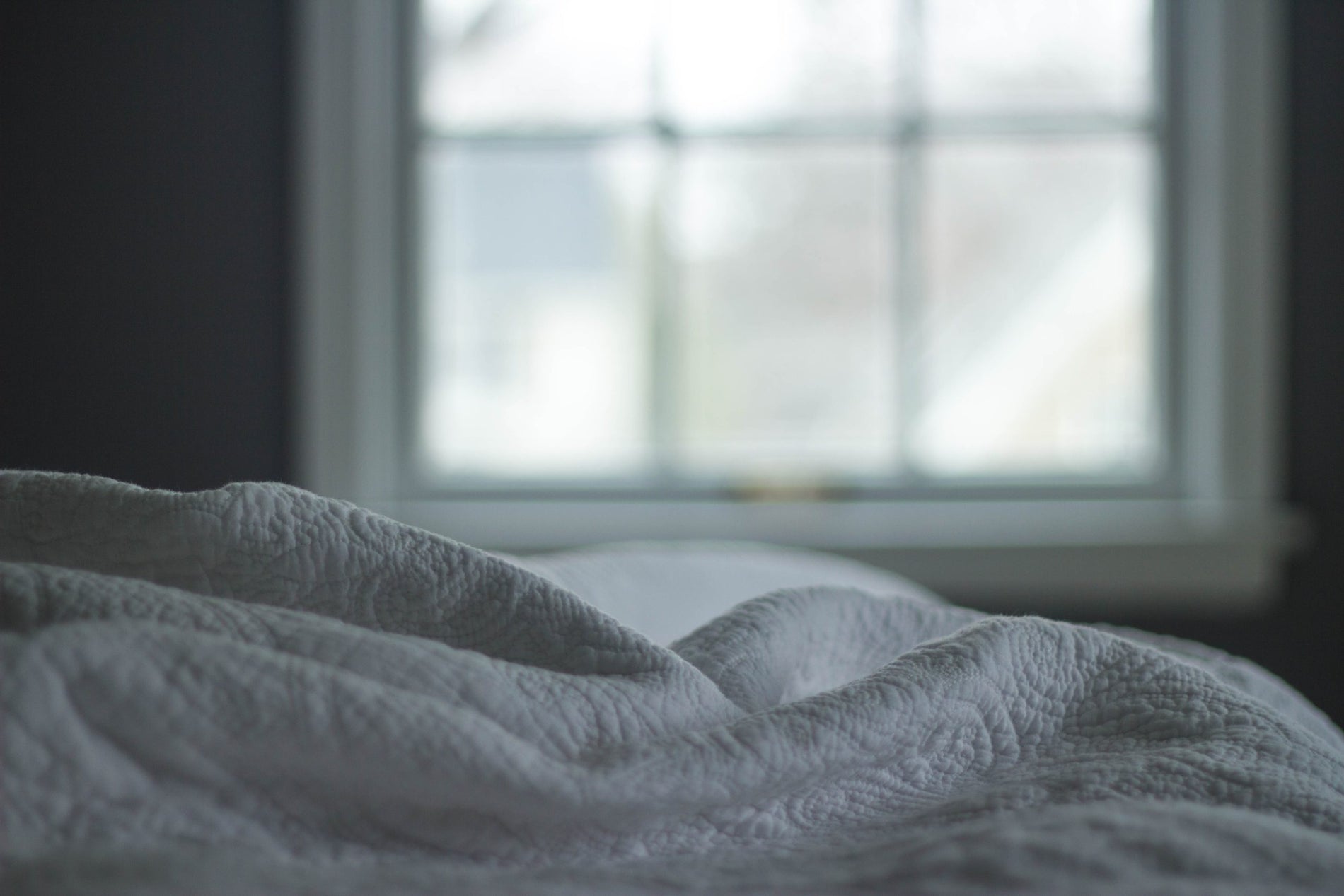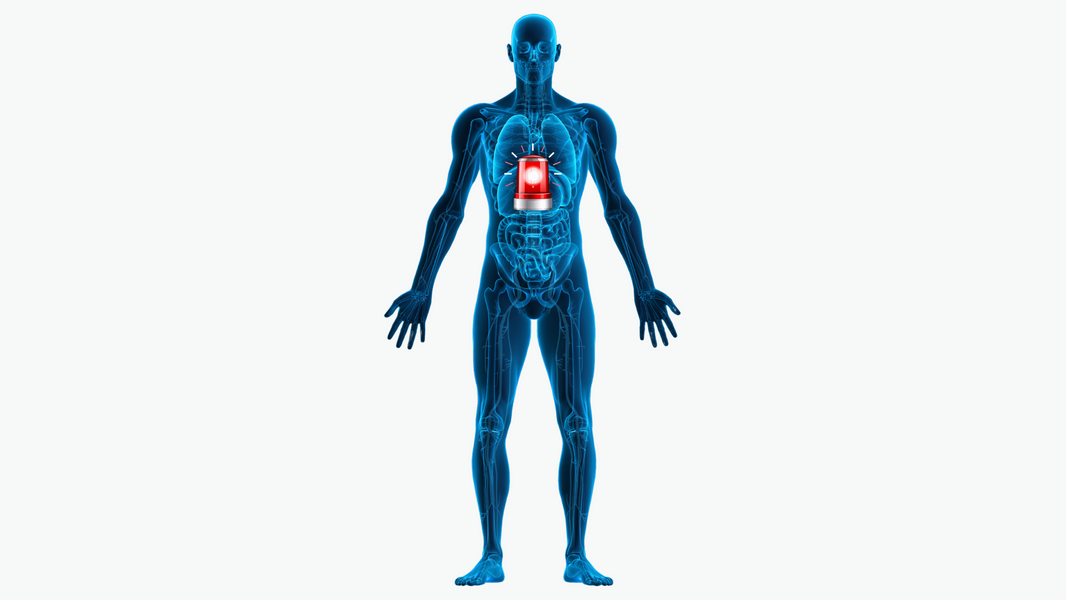“Since starting the Betr Health program, I sleep better than I ever have in my ENTIRE LIFE!” – Alyson, Betr Success Story.
Read the reviews on betrhealth.com or watch some of the member testimonials posted in our online community. You’ll find that many of them have something in common. Thousands of Betr members report improved sleep and energy.
Do you want to know why?
Sleep is something we often take for granted. In our busy lives, we snatch any amount of sleep, and it’s usually not enough. If we’re dragging the next day, we just slug down an extra latte, “power through,” and hope to catch up on the weekend.
It turns out, though, that sleep is essential to our body’s process of resting and repairing. Poor sleep affects mood and metabolism and can lead to the development of chronic disease.
Researchers are now discovering a critical relationship between our sleep cycle, Circadian rhythm, and the gut microbiome.
In this post, we’re going to explore this relationship. Some topics that we’ll be looking at include the following:
- The relationship between your Circadian Rhythm and Gut Microbiome
- How sleep disturbance changes your gut bacteria and why that’s a problem
- Tips for maintaining your gut health and improving sleep
The Gut-Brain Axis.
There are so many ways that our gut health affects our mental and emotional health that scientists have given this relationship a name: The Gut-Brain Axis. A healthy gut regulates hormones and the immune system and battles inflammation, all essential for efficient mental functioning.
It’s also important to realize that the Gut-Brain Axis isn’t a one-way street. A problem in your gut can result in problems in your brain, which results in more issues in your gut. The impact goes both ways.
Takeaway
Gut and brain health affect one another through the Gut-Brain Axis. Problems in the gut cause problems in the brain and vice versa.
Circadian Rhythm and Gut Microbiota
Did you know that our circadian rhythm is regulated on a genetic level? Clock genes are responsible for coordinating our bodily functions and managing our sleep-wake cycle over a 24-hour cycle. Many external and internal factors can affect circadian rhythm, but it gets exciting in the gut!
We know that our gut bacteria are “stowaways” (good ones!) in the ship of our body. They’re not are not something we inherit through our DNA, like eye color, hair color, or whether we can roll our tongue. They come from the environment and have their own genetic code.
Despite that, these beneficial bacteria listen to our human clock genes when they give them the daily itinerary. They essentially adjust their schedule to our circadian rhythm! To further blow your mind, they also regulate our body’s production of clock genes, which helps to maintain a healthy circadian rhythm.
Takeaway
Our Circadian rhythm is controlled by clock genes. These clock genes communicate with our beneficial gut bacteria to keep them on our body’s schedule. Our gut microbiome also contributes to regulating the expression of our clock genes.
Scheduling Conflicts: Health, Circadian Rhythm Disruption, and Disease
“I feel good and happy when I wake up!” – Sharlene, Betr Success Story.
Have you ever had to work nights? Some people love their night shifts, but most feel slightly “out of sync.” Sleep disruption can affect mood, metabolism, and, obviously, the sleep cycle.
There’s more to this than just being “sleepy.” Your circadian rhythm affects every part of your body from the cellular level up. Disruptions in this cycle can have serious and wide-ranging effects.
One of the most important things to recognize is that sleep disturbances and stress are closely related. Stress causes sleep disturbances. Sleep disturbances cause more stress, which causes more sleep disturbances.
Let’s use a study of shift workers to examine how sleep disruption, and its effect on our gut bacteria, can result in adverse health consequences.
This study found that shift workers, who usually have short sleep cycles and disrupted circadian rhythms, exhibited changes in the diversity of their gut microbiota. The community of bacteria in their gut shifted toward the less healthy species. This change in gut microbiota was associated with more challenges in dealing with stressful life events.
These challenges resulted in more anxiety, depression, and sleep disturbances. These symptoms, combined with the altered gut microbiota, increase cortisol, the stress hormone. Over the long-term, cortisol results in chronic inflammation and a dysfunctioning immune system.
Increased cortisol and inflammation result in more stress, which causes more unhealthy changes to our gut microbiota, further disrupting sleep and mood.
We’ve all been in an emotional rut when it feels like the stress and responsibilities are piling up. That’s because, in a literal and physical sense, they are.
Takeaway
Disruptions in your sleep cause unhealthy disruptions in the community of bacteria in your gut. These disruptions increase stress, inflammation, and anxiety, which causes further sleep disturbance.
Rest Easy! We Have Some Answers
“I’m sleeping much better, I’ve got much more energy, it’s a total lifestyle change!” – Erik, Betr Success Story.
If the above information stresses you out, fear not! We have a few tips, tricks, and encouraging tidbits to help you keep your gut healthy, your mind calm, and your sleep…sleepy?
However, f you’re a fan of mice, we might subject you to just a teensy bit more before the finish line. Researchers primarily use mice to determine the relationship between gut health and anxiety.
They do this by breeding “germ-free” mice, or mice without any gut microbiota, and seeing how they react to stressful situations. What kind of stressful situations, you might ask?
Trigger warning: mice lovers, you may want to skip this next part.
Researchers studied the stress reactions of germ-free mice by removing baby mice from their mothers(just mean!), throwing germ-free mice in a bucket of water (they gave this the boring science name of “water avoidance stress”), or putting rats in awkward social situations (seriously, they made them hang out with strangers).
Then researchers either compared the germ-free rodent’s reactions to the reactions of rodents with natural gut microbiota.
Researchers found that germ-free mice experienced more stress and responded to it less effectively than mice with healthy gut microbiota. They also found that administering the prebiotics and probiotics improved mouse gut microbiota and stress responses.
You may wonder what this mouse torture has to do with your sleep and gut microbiota.
This evidence indicates that a healthy gut microbiome can help improve our stress response, which can help improve our sleep. Better sleep further improves our stress response and supports a healthy gut microbiome.
It’s the circle of life for stress and sleep!
Good sleep hygiene (consistent bedtime routine, avoiding electronics, etc.) is essential to improving your sleep quality, but sleep hygiene is just one approach to improving your sleep, your gut health, and your overall functioning.
As the information above shows, it’s not a coincidence that our Betr members experience profoundly improved sleep. It’s a natural result of improved gut health! The Betr protocol focuses on improving your gut health and healing inflammation by using food as medicine.
Takeaway
Evidence shows that a healthy gut microbiome plays a significant role in regulating mood, energy, and sleep. Betr uses the approach of food as medicine to maximize gut health and improve sleep!
Putting the issue to bed
In this post, we’ve learned that:
- Gut and brain health affect one another through the Gut-Brain Axis. Problems in the gut cause problems in the brain and vice versa.
- Our Circadian rhythm is controlled by clock genes. These clock genes communicate with our beneficial gut bacteria to keep them on our body’s schedule. Our gut microbiome also contributes to regulating the expression of our clock genes.
- Disruptions in your sleep cause unhealthy disruptions in the community of bacteria in your gut. These disruptions increase stress, inflammation, and anxiety, which causes further sleep disturbance.
- Evidence shows that a healthy gut microbiome plays a significant role in regulating mood, energy, and sleep. Betr uses the approach of food as medicine to maximize gut health and improve sleep!
The Betr protocol improves mood, rest, and energy by restoring your microbiome, reducing inflammation, and reversing chronic disease using food as medicine. If you’re losing sleep and wondering if you need Betr to restore your microbiome, take our Gut Quiz to find out!






